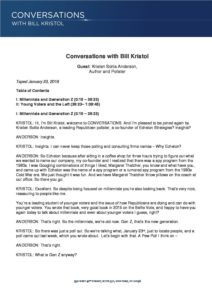

“I guess hallucinations in ChatGPT are still acceptable, but when a recipe comes out hallucinating, it becomes a serious problem,” Bagler said, standing up in a crowded campus auditorium to address Altman on the New Delhi stop of the U.S.

When Sam Altman, the CEO of OpenAI, visited India in June, the professor at the Indraprastha Institute of Information Technology Delhi had some pointed questions. A single “hallucinated” ingredient could be the difference between a tasty and inedible meal. In partnership with India’s hotel management institutes, computer scientist Ganesh Bagler has been working for years to get AI systems, including a ChatGPT precursor, to invent recipes for South Asian cuisines, such as novel versions of rice-based biryani.
#Facebook ai conversation transcript archive#
The Associated Press is also exploring use of the technology as part of a partnership with OpenAI, which is paying to use part of AP’s text archive to improve its AI systems. Google is already pitching a news-writing AI product to news organizations, for which accuracy is paramount. Nearly all of the tools include some language component.

Chatbots are only one part of that frenzy, which also includes technology that can generate new images, video, music and computer code. The McKinsey Global Institute projects it will add the equivalent of $2.6 trillion to $4.4 trillion to the global economy. A lot is riding on the reliability of generative AI technology.


 0 kommentar(er)
0 kommentar(er)
